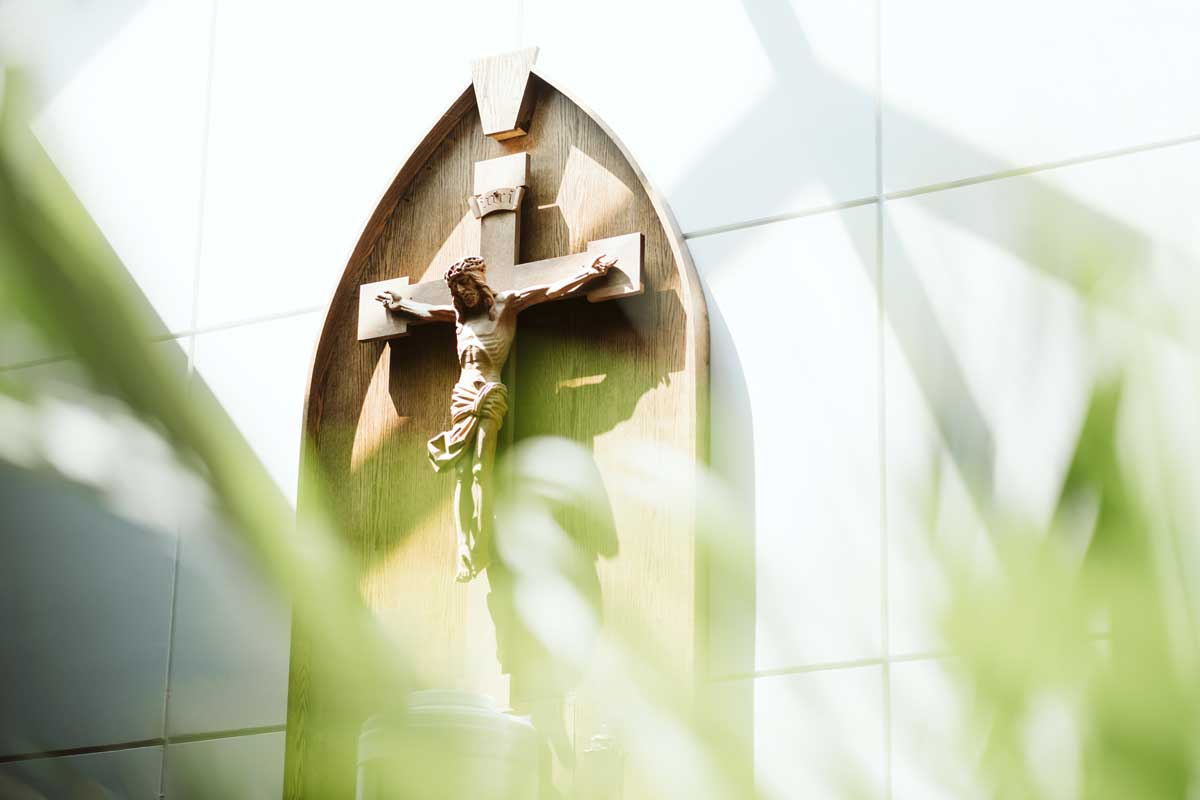During the Easter season, we have a wonderful opportunity to be ambushed, once again, by the profound depth of God’s mercy in our lives.
It is a common understanding that divine mercy is the perfectly loving response of God to our suffering and sinfulness. It is not a mere pardoning of our offenses or a shallow gesture of benevolence. Divine mercy is God’s deeply personal response of love to this noble race that is unable to help ourselves up. The reason for our helplessness doesn’t really matter to God because He never measures our lowliness. Rather, the only measure is God himself, who is mercy itself.
At the root of mercy is a person’s willingness to identify with another’s weakness or vulnerability and to lift that person up to a place that is more aligned with their inherent dignity—or even more, as God has done for us in Christ, to lift that person up to a place that surpasses that dignity. It doesn’t matter how the needy ones happened upon their lowliness; what matters to the merciful is to lift up the lowly, regardless of their circumstances.
Jesus is the complete expression of the God whose name is mercy itself, as Pope Francis tells us. Jesus’ Easter mission is to bring the authority of God’s mercy before us, and to thereby redeem us in his loving embrace. Our world abides by a different logic than mercy, however—that of power and despotism. The logic of this world is that the lowly shall serve the great or be dispensed with.
But from the first moment of creation, such is not how God has revealed His way of being. The very act of creation itself says that God is the one who empties himself in self-giving love to those infinitely lesser than he is. He has no prerogative except to give Himself completely to those who, apart from Him, are and have nothing. He has no need for creation or our redemption otherwise.
And this is proven not only by the fact that he has given each of us the gift of life, but because, as Paul says in his letter to the Romans, “While we were yet helpless, at the right time . . . Christ died for the ungodly. Why, one will hardly die for a righteous man . . . but God shows his love for us in that while we were yet sinners Christ died for us” (5:6-8). Not only have we been given in being; we have been for-given as well.
The Church has enumerated 14 works of mercy, both spiritual and bodily in nature. In each case these kindnesses are nothing less than Jesus’ response to our poverty and sinfulness. We all need food, drink, clothing, shelter, medical care, and liberation from captivity. Even more necessary is encouragement, fraternal correction, forbearance and forgiveness when we sin, comfort in distress, and the prayer of others. It is imperative that we see in these acts a complete identification of God with our lowliness. “Whatever you do for the least of these, you do for me” (Matthew 25:45).
In this time of epidemic and in the midst of our angst, it is a wonderful time to renew our practice of, or to take up for the first time, the works of mercy. Let’s lay aside our self-justifications and, instead, lift others up to a dignity that surpasses their wildest dreams. It is also good to be reminded that God will show mercy toward us, if we place our confidence in Him.
Originally published in the Pittsburgh Catholic, April 22, 2016.


